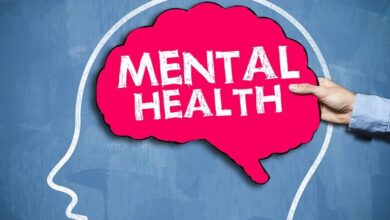CA Mental Health: Navigating Support and Services in California

Through the breaking stigma around a person’s mental health, California has emerged as one of the notable states trying to offer dedicated services. The state has a growing population, with a set of social issues, and at the same time, a developing awareness, making the supply of mental health care services on a relative increase.
If you are in search of information or services in California, CA Mental Health is the place to go. They will provide you with the assurance and clarity needed to make the right decision.
Why Mental Health is Important Now More Than Ever
The discussions around mental wellbeing have become prominent. It is hardly surprising. Millions of people in the U.S. suffer from depression, anxiety, PTSD, and a wide array of other mental health disorders. Currently, in California, more than 1 in 5 adults is believed to suffer from mental illness. The recent pandemic has worsened the situation with increased substance abuse, suicidal thoughts, and overall emotional distress.
The good news is that there is a growing support system. Starting from grassroots-level advocacy to government programs, taking care of one’s mental health has transformed from a taboo subject to the primary focus that directly impacts family, work productivity, education, and general health.
Examining Mental Health Issues in California
As one of the biggest and most advanced states, California is remarkable in high-tech industries and class-level universities but suffers from homelessness and poverty, along with other access inequality straining mental healthcare.
Here’s a quick snapshot:
- Youth Mental Health Struggles: Suicide is still one of the highest leading causes of death among 15-24-year-olds in California.
- Workplace Burnout: Service and tech workers in San Francisco and Los Angeles claim stress and burnout to be at an all-time high.
- Undercovered Groups: BIPOC populations, immigrants, and those living in rural areas are often unable to access inexpensive mental healthcare services.
The CA Psychology initiative hopes to plug the gaps by offering easy access to information and appropriate treatment pathways along with basic education.
Mental Health Services Offered in California
Californians can access a range of programs, clinics, and support groups tailored to individuals and families.
1. County Behavioral Health Departments
Every California County has a local department that offers low or no-cost services, which may provide:
- Crisis stabilization services
- Outpatient, inpatient care
- Peer support services
- Case management alongside medication supervision
Most counties also have 24/7 hotlines for emergencies or guidance.
2. School-Based Mental Health Programs
Most public schools have started integrating mental health programs and counseling services into their curriculum. This includes:
- Employing psychologists
- Collaborating with local counselors
- Crisis response units
This initiative helps address the problem of early intervention for adolescents and teens facing mental health issues.
3. Community-Based Organizations (CBOs)
Non-profit organizations and CBOs have a significant impact on access to mental health resources in California. Be it providing therapy that understands cultural dynamics or providing counseling services in groups for marginalized populations, these organizations are at the forefront.
For instance:
- Support groups for the mental wellbeing of LGBTQ+ individuals
- PTSD programs for veterans
- Trauma-informed care teams for immigrants
How to Find Help for Mental Health in California
Finding your way through the maze of avenues available to you for addressing your mental health can be challenging. Luckily, resources such as CA Mental Health make the process easy by linking you with qualified providers and other essential support services.
Here’s how to start:
- Determine Your Issues: Identifying whether you are struggling with anxiety, addiction, grief, or trauma is essential. The more specific you are, the more tailored the resources will be to your needs.
- Review Your Insurance or Funded Options: If you hold an insurance policy, make sure to check what’s included under coverage. If you don’t have one, check eligibility for Medi-Cal or county-led services.
- Use Trusted Resources: Rely on certified health directories, local health departments, and other trusted sites like CA Mental Health that compile verified options.
Breaking the Stigma: Why it’s Okay to Ask for Help.
Stigma is one of the major barriers to treatment. People are often shy to seek help for mental health issues because they are scared of what others might think, or they feel they should somehow “grin and bear it.” But just as a person requires medical assistance for a broken limb, mental health concerns require attention and care, too.
It’s perfectly fine not to feel okay. And it is totally okay to seek help.
There is an increasing shift towards acceptance of mental health issues. Businesses are starting to incorporate EAPs (Employee Assistance Programs). Schools are introducing emotional wellbeing days. Even popular personalities and sports figures are coming out and discussing their mental health struggles.
Your story is important. What you are going through and feeling is justified. Recovery can be achieved.
Tips To Maintain Good Mental Health Daily
While professional help is the go-to option for most, adopting healthy lifestyle habits can add extraordinary value to mental wellness.
Here’s a list of some easy, everyday things that can boost mental health:
- Practice Mindfulness: Stress levels can be significantly alleviated by engaging in even just 10 minutes of deep breathing exercises or guided meditation.
- Remain Active: Moving around increases endorphins, which improves a person’s mood. Stretching at home or taking a stroll in the park
- Eat Properly: A balanced diet has a substantial impact on a person’s mood. Nutrition, especially in the form of whole foods, drastically improves a person’s mood if they are well-hydrated and limit their sugar intake.
- Sleep: Following a sleeping schedule helps in balancing a person’s emotions.
- Social Media Break: Stepping away from social media and digital devices fosters mindfulness and enables a person to enjoy real-life interactions.
Mental Health and Drug Use: A Co-occurring Condition Viewpoint
Looking more closely at psychological issues in California, the massive drug abuse problem does coincide with mental illness. This combination offers a great challenge to psychiatric care.
The majority of people tend to abuse drugs with the aim of controlling depression, anxiety and trauma. Recovering from substance dependence without dual diagnosis components can be very complex.
The good side is that. Both disciplines – mental health treatment and substance addiction care are provided in one place in California. Integrated programs combine therapy, medication, detox, and community support.
Teletherapy and Technology: What’s Left for California’s Mental Health
Teletherapy has been proving effective for mentally ill patients, making an in-person California trip easier than expected.
What else is in the works?:
- Telehealth Expansion: Therapy is now preferred online as a post-pandemic reality. It’s literally more convenient than ever to access support from the comfort of your living room.
- AI-Powered Tools: Self-help and mood-tracking tools are at the tip of your fingers through bot and app technology.
- Data-Driven Outreach: Programs are now utilizing real-time data to identify crisis clusters and rapidly deploy help.
The approach to mental health in the future will be more inclusive, efficient, and patient-centric.
FAQs: Your CA Mental Health Questions Answered
1. Can I get free therapy in California?
Yes! Countless counties provide free services, especially to those on Medi-Cal and uninsured. Resources are available through CA Mental Health.
2. Is teletherapy covered by insurance in California?
There have been a lot of changes regarding insurance policies. Most plans now include telehealth services of any kind, including therapy sessions.
3. How do I know if I need help?
If you’re having a hard time with day-to-day activities like getting out of bed, feeling intense and constant stress, emotional numbness, or thoughts of self-harm, reach out before it gets too late. Seeking assistance in a timely manner can reduce potential future complications.
4. Can I help someone else find support?
Yes, for sure! You can use other directories, such as California Mental Health in order to aid a friend or family member in locating help and encouraging them to seek help.
Final Thoughts from California Mental Health
California is doing its best to ensure that mental wellness is a priority. With an ever-growing pool of resources, supportive dialogue, and holistic approaches, no one has to travel this road alone.
As you begin considering the resources available to you or as you support someone you love, it is essential to keep this in mind: we can all find help, healing is achievable, and hope is tangible.




